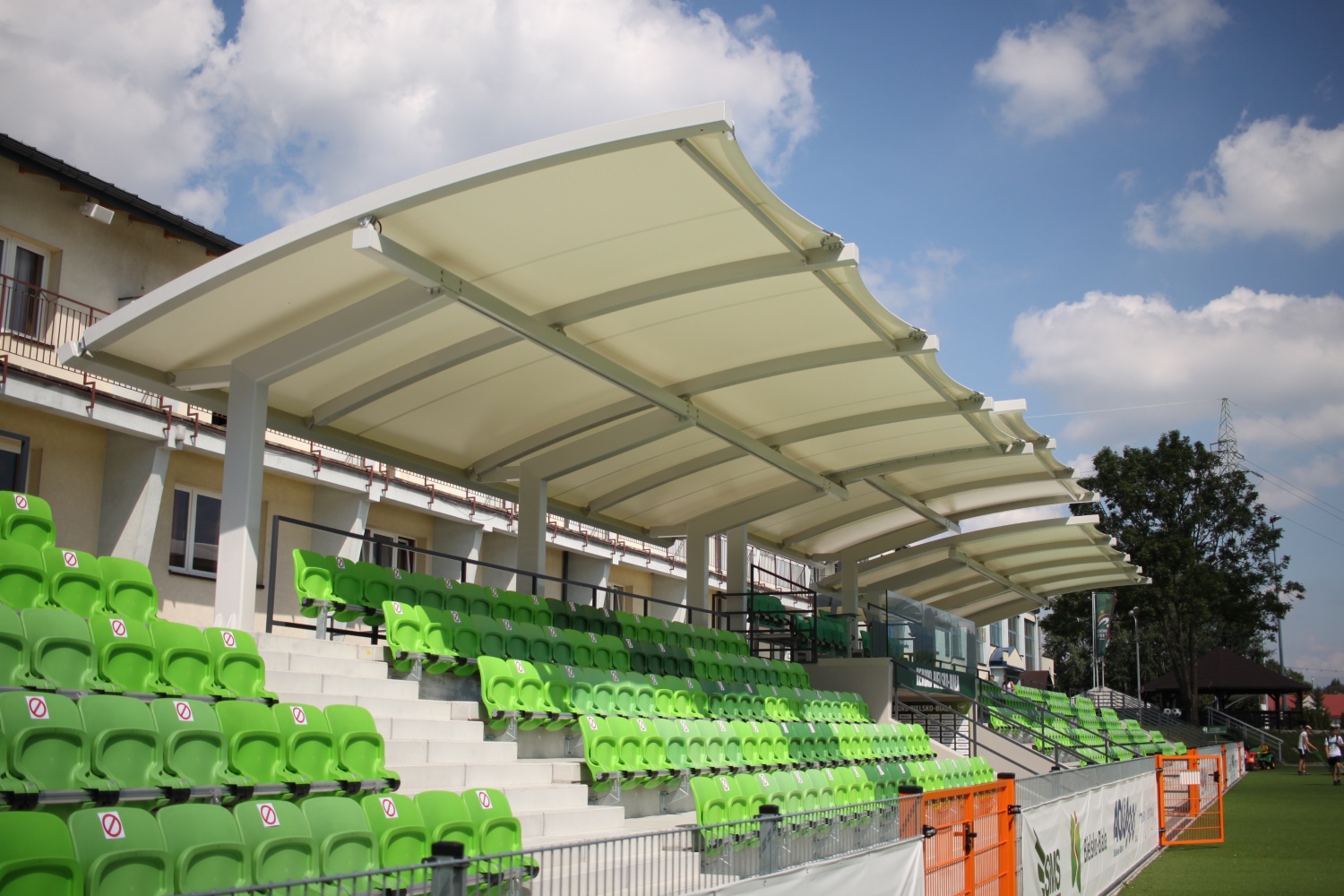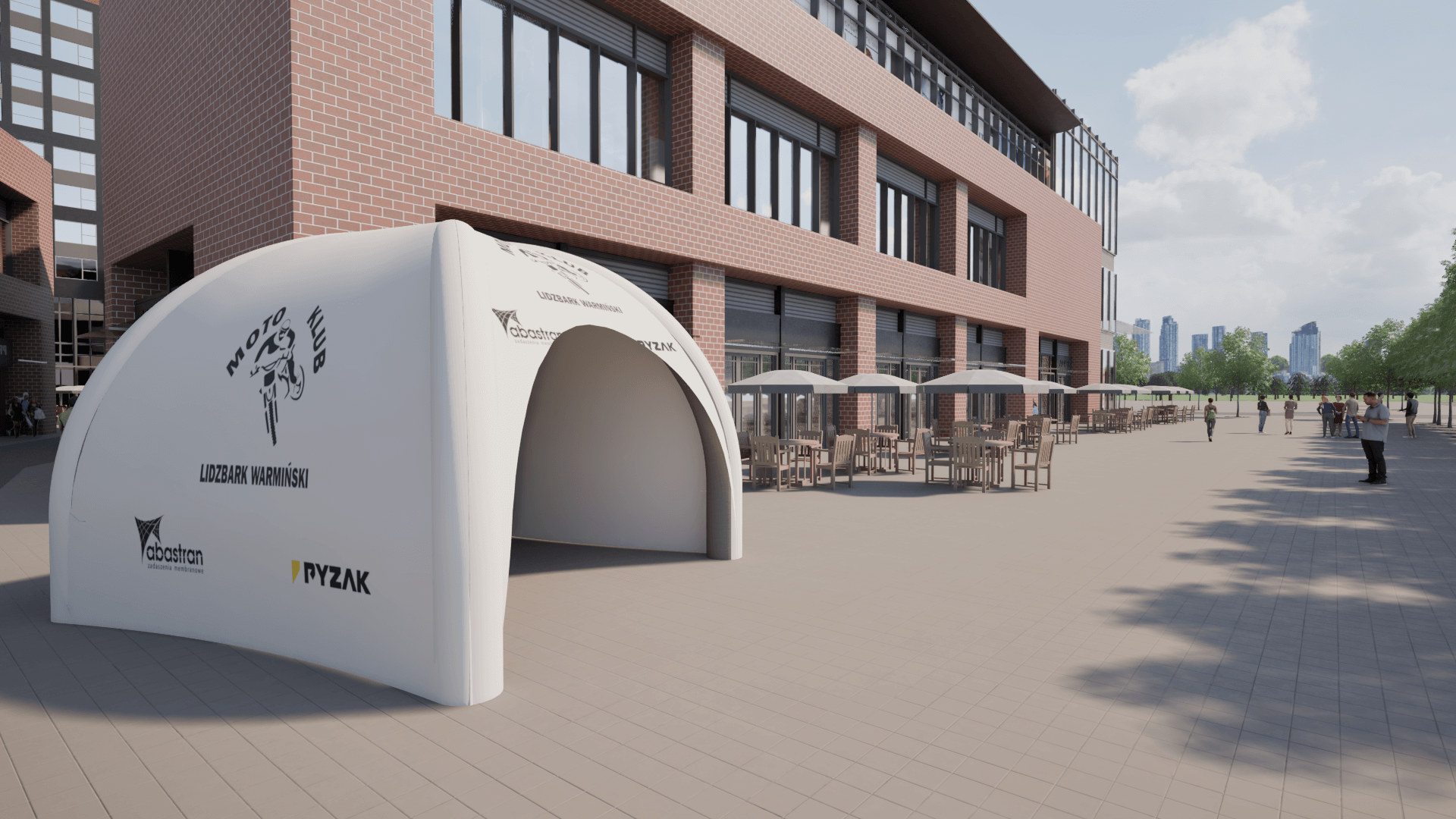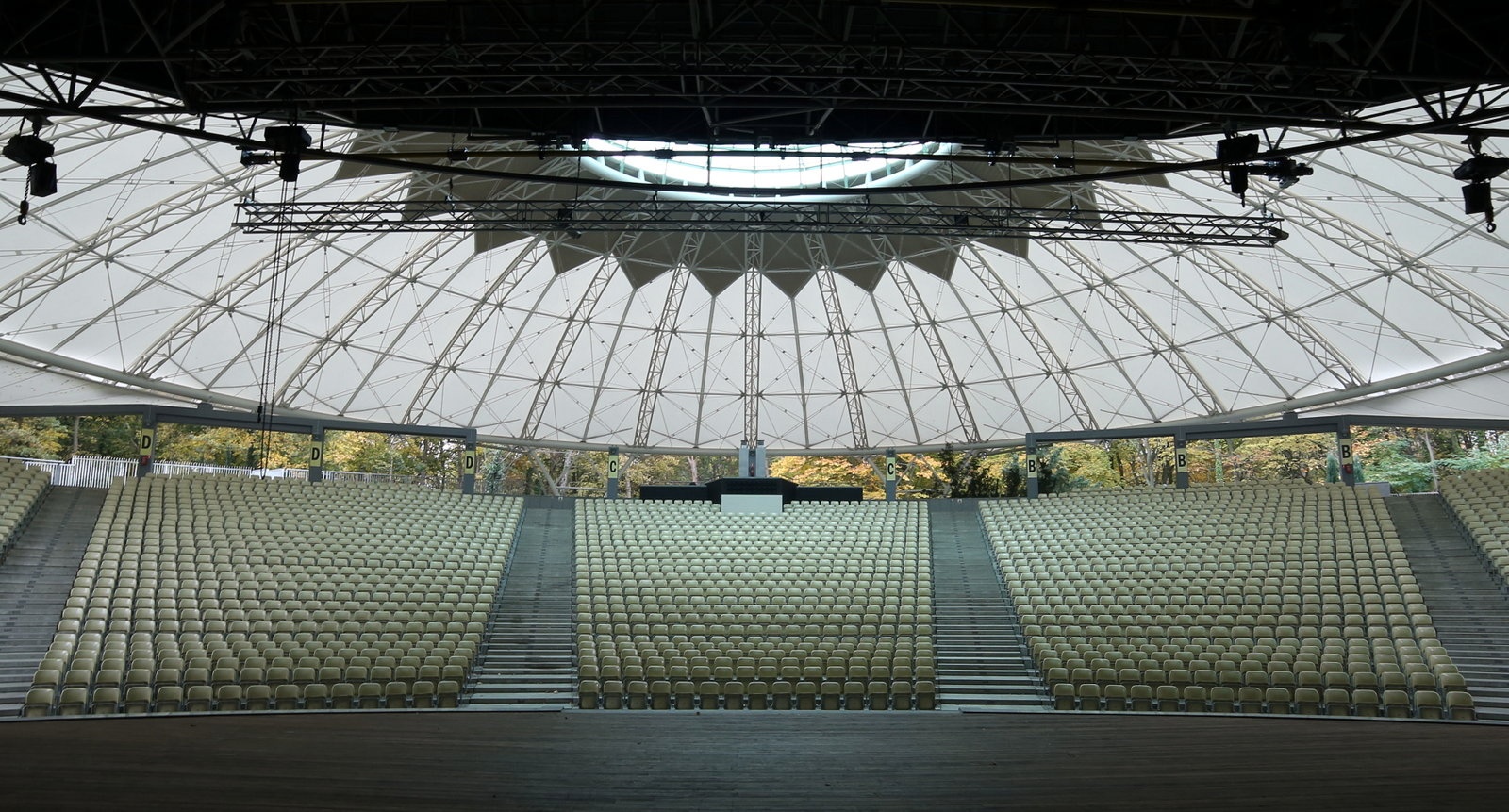
Are Membrane Roofs Suitable for Sports Facilities?
Membrane roofing is a modern architectural solution that is gaining popularity in various areas of construction, including sports facilities. They are lightweight, flexible, and durable, and thanks to the use of advanced materials such as ETFE or PVC membranes, they perform excellently in harsh weather conditions. But is a membrane structure a good choice for sports facilities? In this article, we will present their key advantages and discuss why this solution is worth considering.
Benefits of Membrane Roofs for Sports Facilities
Lightweight Construction
One of the biggest advantages of membrane structures is their lightness. Compared to traditional roofs made of metal or concrete, membranes require lighter supporting structures, resulting in less load on the foundations. This is especially important in large spaces, such as tent halls, sports halls, or football stadiums.
Protection Against Weather Conditions
Membrane roofs provide protection against rain, snow, and intense sunlight. Sun protection is especially important for spectators. The roofing of sports fields, tennis courts, or stands allows safe use of the facilities regardless of the weather. Moreover, membranes like PTFE or PVC are resistant to UV radiation, ensuring a long lifespan for the structure.
Creating Large, Open Spaces
Membrane facades allow for the creation of large, open spaces without the need for numerous supports. This is an ideal solution for sports facilities, such as membrane sports halls, stadium roofing, or stands, where space and visibility are crucial. Thanks to the flexibility of membrane roofs, roofing can be achieved in various shapes, opening up wide design possibilities.
Long Lifespan and Low Maintenance Costs
Modern membrane coverings are exceptionally durable, and their maintenance is significantly less demanding than that of traditional roofing materials. ETFE membranes, used in stadium roofing, are practically self-cleaning due to their smooth surface, further reducing operating costs.
Examples of Membrane Roof Applications in Sports Facilities
Roofing for Sports Fields
The roofing of football fields is one of the most common applications of membrane structures. Thanks to their lightness and durability, large spaces can be easily covered, providing protection from rain and sun for both players and spectators. Membranes help maintain a suitable microclimate on the field, positively impacting game quality. The transparent membrane allows sufficient sunlight for players to have good visibility.
Roofing for Tennis Courts
Tennis courts often utilize membrane roofing due to the ability to freely adjust light permeability. A tent roof made of ETFE or PVC membrane allows for the optimization of lighting and protection from rain, enabling play in almost any conditions.
Roofing for Swimming Pools
In sports facilities such as swimming pools, ETFE membranes are often used, characterized by high light permeability. This solution enables natural lighting of the pool area, making it more comfortable for users and also energy-efficient.
Roofing for Stands
Protecting spectators in stadiums is a priority, which is why membrane roofing for stands is frequently used in modern stadium projects. They provide protection from rain and sun while, due to their lightness, do not obstruct the view from the stands.
Pneumatic Roofing – A Modern Solution for Sports Facilities
Pneumatic roofing consists of lightweight membrane structures that maintain their shape through air pressure. Ideal for temporary or seasonal sports facilities, such as fields, courts, or pools. Pneumatic halls do not require traditional supports, allowing for large, open spaces. They are quick to assemble and disassemble, and also provide good thermal insulation, enabling year-round use of the facilities. This is an economical and flexible solution, often chosen by investors.
The Process of Implementing a Membrane Roof Project
The implementation of a membrane roof for sports facilities requires several steps:
- Designing the Structure – Architects and engineers design the roof based on the specifics of the facility, considering technical and aesthetic requirements, as well as the safety of the structure.
- Material Selection – Depending on the project needs, an appropriate membrane material is chosen, such as ETFE, PVC, or PTFE.
- Installation – The installation process of the membrane roof is relatively quick, thanks to the lightweight structure and the ability to prefabricate elements.
- Maintenance – Although membranes are durable and resistant to weather conditions, regular maintenance of the roof, especially in harsh conditions, can extend their lifespan.
Summary
Membrane roofs for sports facilities are innovative solutions that combine lightness, durability, and aesthetics. They are increasingly chosen by architects, investors, and facility owners due to their versatile applications—from roofing sports fields to tennis courts and stands. Their durability and ability to create spaces filled with natural light make them an ideal choice for modern sports facilities.
Order a Membrane Roof for Your Sports Facility
If you are considering building or modernizing a sports facility, Abastran offers comprehensive solutions for membrane structures. Our membrane roofs for sports facilities combine modern design with maximum functionality. Contact us to learn more!
👉 Contact us for a personalized quote for a membrane roof for your sports facility!

Advertising Tents as an Investment – How to Increase Brand Recognition at Events?


Competition for Innovative Membrane Roofing – Results and Inspirations
This year, we had the pleasure of organizing a competition together with the Faculty of Architecture at the Silesian University of Technology for 6th-semester students to design innovative membrane roofing. The award ceremony, held at the Faculty of Architecture in Gliwice, was the culmination of the young designers’ creative and technical journey.



